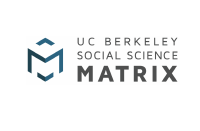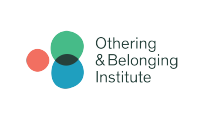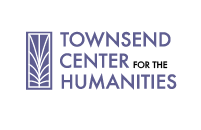The Berkeley Center for the Study of Religion (BCSR) advances creative and critical scholarship on religion. BCSR’s public programming, faculty research, and graduate training drives new approaches to the study of religion and its intellectual and material contexts. Through our media platforms and engagement with local and global audiences, BCSR fosters critical reflection and public discussion of this innovative work.
Since its founding in 2012, BCSR has become a nexus for interdisciplinary collaboration, uniting leading scholars from an array of disciplines and responding to recent developments in the humanities and social sciences. We provide our colleagues, students, and the public with opportunities to deliberate conceptions and practices of public theology, the varieties of theological practice and imagination across diverse religious traditions, and what theology would have to become in order to participate in the pluralistic space of the public university.
What should a conversation about religion look like in a public university? How can public institutions of higher learning productively engage with the historical and contemporary aspects of religious imagination and traditions, and help future leaders understand the changing dynamics of religious and secular life? What is the relationship between theology and a democratic way of life? How can we develop a more capacious and pluralistic understanding of theology as it has influenced and continues to influence democratic processes? These are just a few of the questions that form the research mission of BCSR, and that we have explored and continue to explore through the Berkeley Public Theology Program (2016-2020) and our new initiative, the Berkeley Democracy and Public Theology Program.
Our approach is simple: we allow the specific insights afforded by particular disciplines (whether quantitative or qualitative, interpretive or descriptive) to gather around common objects in religion, and explore the consequences in robust interdisciplinary dialogue.
UC Berkeley is a unique stage for these important conversations. The campus community offers an exceptional cross-section of the public at large. It is located in one of the most dynamic areas in the country, a hub of intersection between Asia, the Americas, and Europe, with an engaged citizenry committed to the ideals of public education. Innovation at Berkeley sends powerful ripples into the wider world. Through robust investigation of, and encounter between, different worldviews, we affirm our commitment to the highest goals of the university, namely the pursuits of truth and the public good.
Our goal is not only to share our cutting-edge knowledge with the larger public, but to transform the way we study and talk about religion not only on the Berkeley campus, but beyond the walls of the university as well. We aim to advance both academic and public understanding of theology and religion and to create the opportunity for mutually beneficial, accessible, and interactive conversations.
The Center for Interdisciplinary Critical Inquiry (CICI) serves as the administrative home for BCSR. CICI provides customized support for collaborative research programs with a mission of developing and managing programmatic and administrative activities on behalf of interdisciplinary communities of scholars on the campus.
Collaborators:
BCSR coordinates closely with other institutional spaces and actors at Berkeley who share similar goals:
We have had opportunities to collaborate with BAMPFA, Berkeley Center for Jewish Studies, Berkeley Institute for Jewish Law and Israel Studies, Center for Middle Eastern Studies, Center for Studies in Higher Education, Institute for South Asia Studies, Institute of European Studies, Magnes Collection of Jewish Art and Life, and the Richard S. Dinner Center for Jewish Studies at the Graduate Theological Union.
The Berkeley Center for the Study of Religion is generously supported by the Henry Luce Foundation, the Division of Arts and Humanities, and the Division of Social Sciences.




